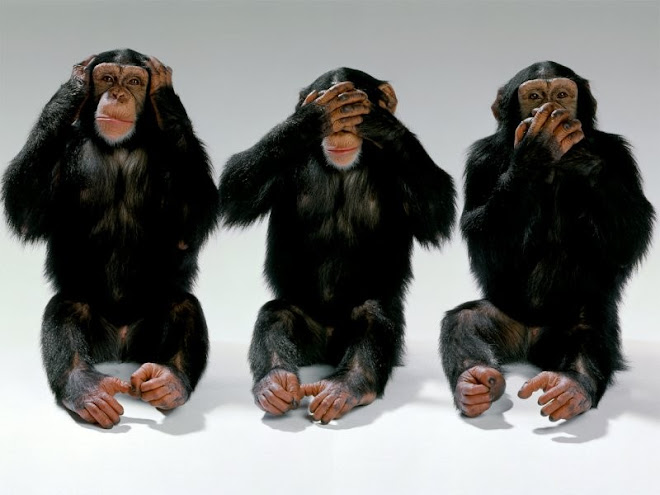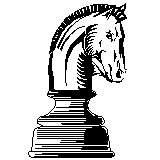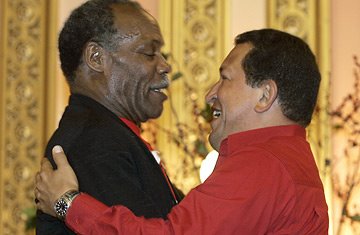Adam Smith
· Theory of Moral Sentiments
· Wealth of Nations
To the extent we are free the better conditions we make for ourselves. As our lives improve, the nation improves.
Use your money profitably: Pleasure and Fun are part of life: Have some fun.
Freiderich von Hayek – Key Concepts:
Markets versus planning: Market exchange works because people value thing differently. The planned economy rests on the unlikely assumption that everyone can agree what to produce, and how.
Importance of prices: The price system reflects the imbalance of demand and supply, and automatically steers resources to where they are most needed - without the need for planners to discover, understand, and correct the imbalance.
We're all planners. We all plan, and we do so on the basis of our own knowledge of local conditions. There is far more useful and current information in this dispersed knowledge bas than could ever be collected in a central planning agency.
Competition is dynamic. Competition is not a textbook 'given' but a dynamic process, in which people constantly search to discover the cheapest mix of resources to produce the most desired outputs.
Human action but not human design: The social order is like language. It is a product of human action, but not something that we have deliberately designed. It evolves and changes, but endures because it is useful to us.
Limits to our understanding: Just as language is built on complex rules of grammar that we follow with ease but cannot necessarily articulate, the social order is built on complex regularities in our behavior - common law, ethics, customs, manners - whose importance we only faintly understand.
The fatal conceit: The totalitarian disasters that have occurred when utopians attempt to redesign society according to their rational plan shows just how little we know about the workings of the complex system of rules on which the social order is based.
Books by Hayek
The Road to Serfdom
This work remains one of the all-time classics of 20th-century intellectual thought. For over half a century, it has inspired politicians and thinkers around the world, and has had a crucial impact on our political and cultural history.
Hayek argues that, while socialist ideals may be tempting, they cannot be accomplished except by means that few would approve of: The business end of a gun barrel, point of a bayonet, the cell, the shackle, and the grave.
Addressing economics, fascism, history, socialism and the Holocaust, Hayek unwraps the trappings of socialist ideology. He reveals to the world that little can result from such ideas except oppression and tyranny. Today, more than 50 years on, Hayek's warnings are just as valid as when "The Road to Serfdom" was first published.
The Constitution of Liberty
In this classic work Hayek restates the ideals of freedom that he believes have guided, and must continue to guide, the growth of Western civilization. Hayek's book, first published in 1960, urges us to clarify our beliefs in today's struggle of political ideologies.
The Constitution of Liberty is a thorough exposition of a social philosophy which ranges from ethics and anthropology through jurisprudence and the history of ideas to the economics of the modern welfare state.
First, the author analyzes the ethical foundations of a free society in which liberty is not merely a value but the very source and condition of all moral values. Next, he examines the institutions that Western societies have developed to secure individual liberty (note: These institutions have their origin in the Christian faith, the personal life of Christ, and the sense of personal responsibility that can only come from a desire to be free from Sin and therefore able to live in a free society. “Freedom” as personal liberty is found first in the Bible. John Puzzo
In the final section, the author discusses the relations between a free-enterprise system and a socialist one, giving a full account of the goals and methods of the present-day welfare state. Hayek ultimately tests the principles of freedom by applying them to contemporary economic and social issues.
Law, Legislation & Liberty
This volume represents the first section of Friedrich A. Hayek's comprehensive three-part study of the relations between law and liberty. Rules and Order constructs the framework necessary for a critical analysis of prevailing theories of justice and of the conditions which a constitution securing personal liberty would have to satisfy.
The Fatal Conceit
Hayek gives the main arguments for the free-market case and presents his manifesto on the "errors of socialism." Hayek argues that socialism has, from its origins, been mistaken on factual, and even on logical, grounds and that its repeated failures in the many different practical applications of socialist ideas that this century has witnessed were the direct outcome of these errors. He labels as the "fatal conceit" the idea that "man is able to shape the world around him according to his wishes.
Books about Hayek:
Hayek: His contribution to the political and economic thought of our time
Dr. Eamonn Butler gives an introduction to the great Austrian economist and political philosopher Friedrich A. Hayek. The book covers the themes of Hayek's work, which consists of more than 25 books and numerous articles. The topics include Hayek's understanding of the market process, his critique of socialism and the meaningless term of social justice, and Hayek's suggestions for the constitution of the liberal state.
The Fundamentals of Austrian Economics - A straightforward but comprehensive introduction to the economic approach of such names as Hayek, Mises, Rothbard, Becker and Kirzner. In direct contrast to Keynes, their view is that economics is about millions of inter-related individual actions. Trying to predict things on the basis of supposed linkages between macroeconomic aggregates is therefore just plain wrong.
Monday, November 10, 2008
Economics, Faith, Law, Morality, Liberty
Labels:
Adam Smith,
Christian Faith,
Econimics,
Economics,
Fabian Socialism,
Freedom,
Hayek,
Law,
Legislation,
Liberty,
Markets,
Morality,
Serfdom,
Tyranny,
Wealth of Nations
Subscribe to:
Post Comments (Atom)





















































No comments:
Post a Comment